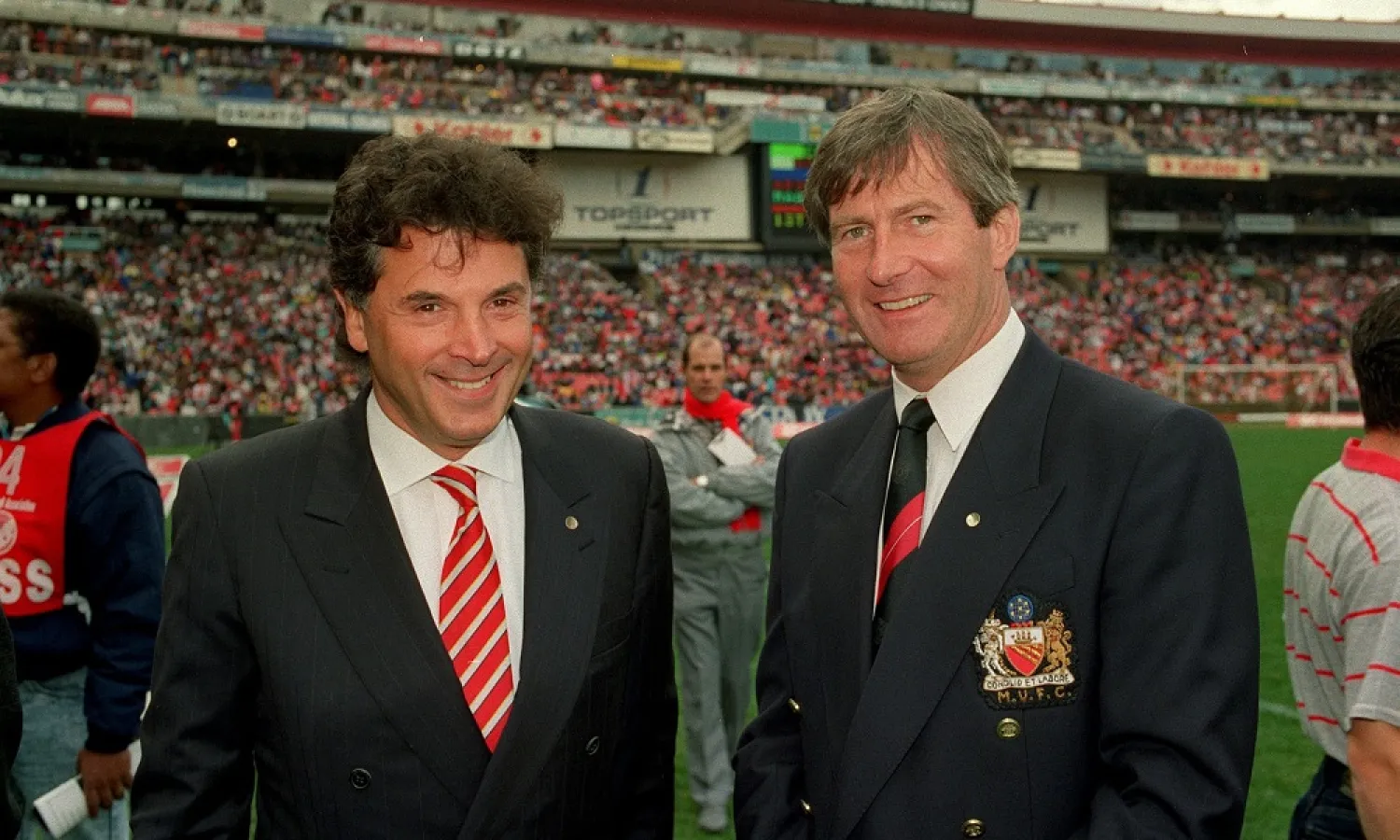In the Football Association brochure that sanctioned the breakaway Premier League 25 years ago at the dawn of the first pay-TV deal, no mention was made of the personal fortunes it would make for the owners of the bigger clubs. Led by the self-appointed “Big Five” of Manchester United, Arsenal, Liverpool, Everton and Tottenham Hotspur, the First Division clubs had angled and threatened throughout the 1980s to leave the century-old Football League, so as not to share the new TV millions with the clubs in the three lower divisions. The FA’s culture had narrowed and curdled through that decade, which ended in 96 people being unlawfully killed at the 1989 FA Cup semi-final which the governing body itself had commissioned at Hillsborough.
The FA produced its “Blueprint for the Future of Football” just two years later, its woolly pages little more than padding for the booby trap at the heart of it: to decapitate the Football League by allowing the First Division to break away. Reflecting on this ruse years later as a profound historic mistake, Graham Kelly, the FA’s then chief executive, said the plan had been for the FA to run the new top league, just as it did the FA Cup. The club owners – referred to as chairmen then, when the game was more coy about the reality that the clubs are commercial companies with shareholders – immediately stripped the FA of that notion and went off to make their billions.
The plight of the Hillsborough families and survivors, suffering a repeating nightmare through the legal system with no support from the FA or the newly super-rich clubs, has presented a terrible contrast throughout with the Premier League’s 25 years of Sky-fuelled windfalls.
The outrage is thumped home by this coincidence of timing: that the Premier League has reached its quarter century, now wallowing in £2.8bn annual television deals, with clubs spending £50m on right-backs, in the same year that the authorities have finally brought criminal charges for those deaths 28 years ago.
The first official report by Lord Justice Taylor identified the causes of the disaster, but the families were still somehow consigned to a 27-year campaign for the truth to be legally established by the new inquests verdicts in April 2016. It was Taylor’s second, final report into safety at sport generally which condemned the governance of football, the state of the grounds, the self-interest and greed of owners and directors, and the dismissive attitudes to supporters who stayed loyal throughout.
The clubs accepted Taylor’s recommendation for grounds to be compulsorily all-seater, which was never willed or agreed by supporters organizations who are still arguing for safe standing.
At the same time, the clubs managed to persuade the government they did not have the money to rebuild their grounds and secured grants of £200m public money, with the new millions from Sky TV’s desperate search for subscribers just over the horizon.
Taylor had argued against the supporters that seats need not necessarily mean higher prices – citing the then £6 cost of a ticket at Rangers’ Ibrox, which was virtually all seats – but the clubs wholly jettisoned that part of his report and multiplied the price of tickets 1,000 percent.
At the heart of the Hillsborough tragedy was the youth of so many who were killed – 37 were teenagers, many attending their first away match – because to stand on that benighted terracing cost only £6, to watch one of the greatest ever Liverpool teams play an FA Cup semi-final against Brian Clough’s Nottingham Forest. It has been another betrayal of supporters and the Taylor Report that through the Premier League’s 25 years, in grounds made safe by law because the FA and clubs themselves were no longer trusted to do it themselves, young people have largely been priced out.
Football is still as coy now as the FA was in its blueprint about how much money the lucky owners have pocketed personally, and the old myth somehow lingers that mostly they lose their fortunes. Of the original “Big Five”, Martin Edwards made £94m from his directorships and sale of shares in Manchester United, David Moores £90m selling his inherited Liverpool stake to Tom Hicks and George Gillett, David Dein £75m selling the Arsenal stake he bought cheaply in the 1980s to Alisher Usmanov. With no blueprint or planning by executive chairman Richard Scudamore or anybody else, the Premier League is now a spectrum of owners from overseas, attracted by the investment value of English football.
Successive governments since Labor's Football Task Force of 1997 have nibbled at this corporate carve-up while being dazzled by football’s media rehabilitation and magnetic appeal abroad. The pledge by the Premier League in 1999 to contribute just 5 percent of its ballooning TV income to improving squalid grassroots facilities was given in return for the government supporting the 20 top clubs’ exceptional right to maximize their deals by negotiating as a collective league.
Currently the Premier League contribution to facilities and community programs is £100m, just 3.6 percent of the galactic TV deals.
When the sports minister Tracey Crouch appeared in front of yet another select committee inquiry into football’s governance, she asked to be congratulated for securing this figure. Like the FA, football’s sadly compromised governing body, and all her predecessors, she has let the top clubs and their owners get away with it.
The Guardian Sport









